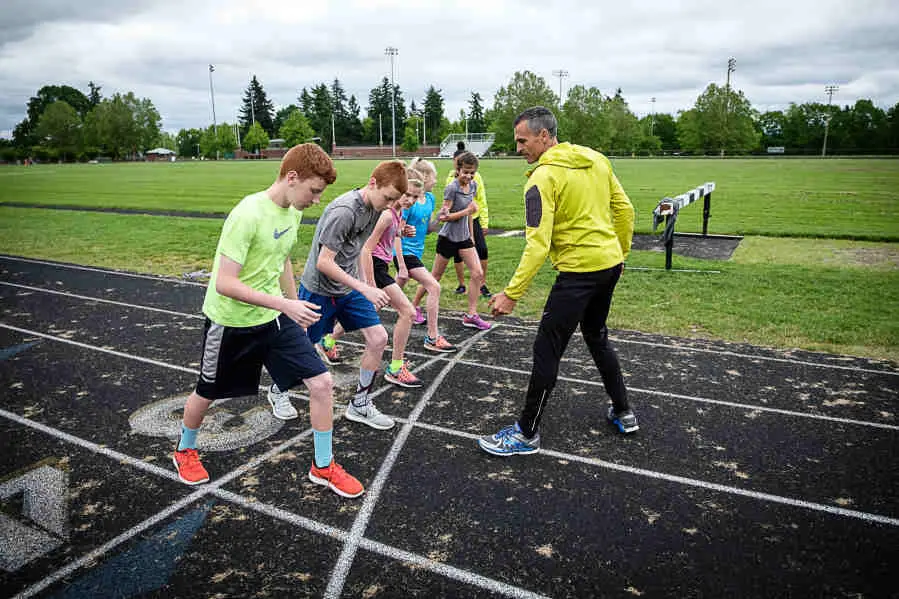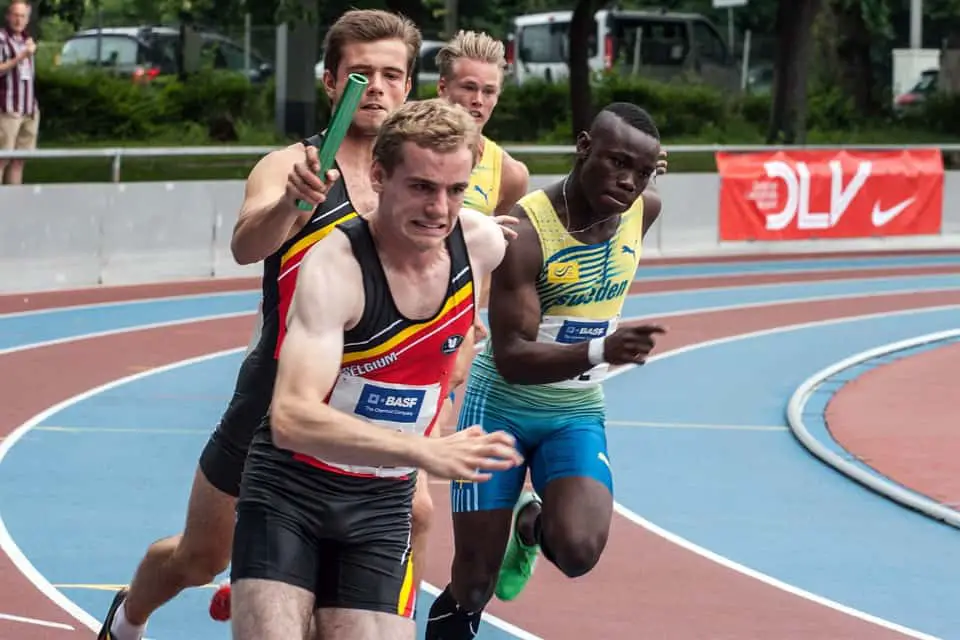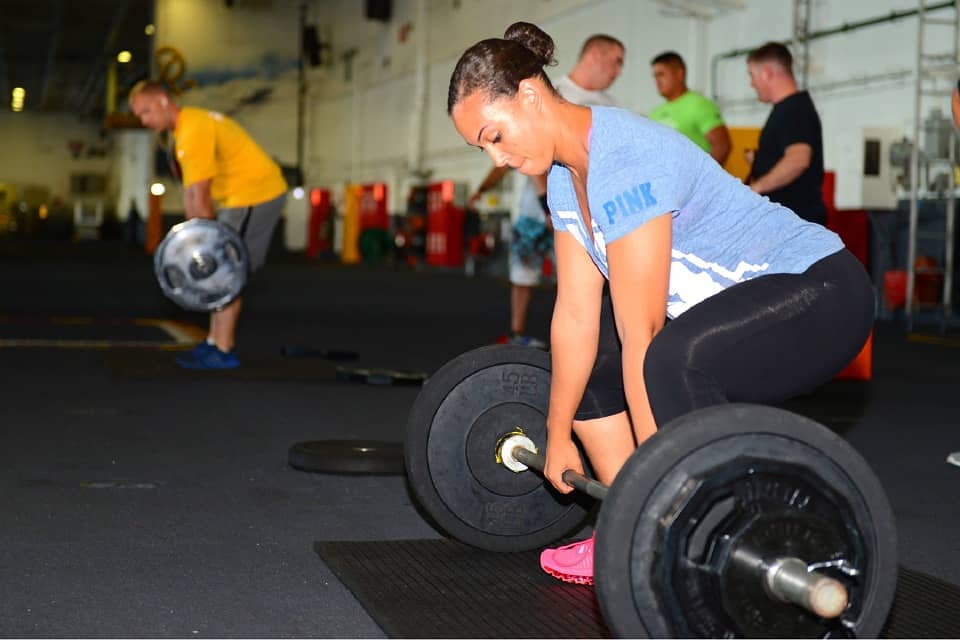Table of Contents

Athletes are constantly working on finding new ways to improve focus during practice and competiton. Learning how to increase focus and concentration is a vital part of an athlete’s training routine. Managing to proverbially “Keep your head in the game” can mean the difference between winning and losing a competition. If an athlete is completely committed to her goals on the playing field and manages to keep her attention on point, she is more likely to react quicker and more efficiently to outside stimuli during games.
There are many sports psychologists that have found ways of increasing the natural mental energy and concentration that athletes have. These useful methods and techniques can help supplement the focus and determination that an athlete has when entering a competitive sports event. Increased concentration and mental stamina can help athletes remember winning strategies on the spot and put them into action.

*This post may contain affiliate links. As an Amazon Associate we earn from qualifying purchases.
Best Ways to Increase Focus
When reading about how to increase focus, it’s important to try different exercises and to reinforce the ones that work best for your particular case. It’s also important to remember that it can take a while before the effects of mental discipline and concentration exercises can be felt. You should be patient with yourself when integrating a new mental focus technique into your preparation routine. It will take a bit of time to accommodate to the practice and to experience the beneficial results, but it will be worth the effort.
Visualization
Visualization is a very useful way to increase focus, and it is a trick that athletes have been using for quite some time. Athletes train themselves by visualizing several situations that could take place during a game. They repeatedly run through these possible scenarios and rehearse the reactions that they would ideally have during each situation. By doing so, they will condition their minds to respond to these situations in an effective way when faced with them in real life.
The purpose of visualization is to solidify the memory of the procedure and the process that should be performed. Visualizing a favorable outcome is not the most effective way to use this mental exercise. Athletes should focus on mentally visualizing themselves performing the motions, techniques, and strategies to remember them better. This helps them promptly repeat these movements when faced with the real-life situations they had rehearsed.
Imagining that you are winning a competition will not actively help you improve the speed of your reflexes. Positive thinking is beneficial for keeping your spirits up, but visualization is meant to help you improve your reactions and efficacy. It is best to concentrate on the processes that you need to complete rather than on a favorable outcome in this case.
Meditation
This mental exercise has become increasingly popular among sport psychology professionals. Breathing meditation can help increase focus and concentration if it is integrated into an athlete’s daily routine. It is recommended that athletes have a 15 to 30-minute breathing meditation session each day to help boost their concentration during sports competitions.
Athletes can use this meditation to achieve a highly focused state of attention when concentrating on performing a task. They require large amounts of energy during performances, so they need to prepare themselves mentally before pushing their bodies to the limit. Breathing meditation techniques can help them reach that mental state easily when faced with a real-life situation that requires increased concentration.
Meditation is used to train the mind. It helps athletes keep their minds focused and relaxed so that they can respond better in high-pressure situations such as sports competitions and games. It is also used to help athletes tune out distractions during competitions and training sessions. Breathing meditation is an excellent way to train your mind to focus all of its energy and attention on one single goal, purpose, or object.

Instructional Self-Talk
Positive affirmations and motivational mantras can help athletes keep their spirits up during competitions. The beneficial effect of positive thinking and reinforcement has been discussed at length by professionals, and many medical studies have proven that it can help improve athletic performance during high-pressure situations such as intense training sessions and competitions.
Instructional self-talk was found to be a very successful way of self-training. Athletes repeating instructions and indications to themselves showed progress in learning and muscle control abilities. The technique helps athletes sharpen their skills and improve their self-awareness and self-control. It also aids in assimilating new information and integrating new methods into practice and training sessions.
Self-talk can also help athletes keep their spirits up during intense situations such as competitions or conditioning and workout sessions. Repeating positive affirmations to yourself during intense physical effort can help keep you pushing your limits. You can encourage yourself to maintain your pace or to extend the amount of time spent working out by keeping your attitude positive. Being in a relaxed and motivated mental state during competitions or games will get you to push yourself harder and strive to perform better each time.
Changing Perspective
Changing your point of view or your perspective when analyzing a situation enables you to have a more complex understanding of that situation. Looking at a situation from a different perspective teaches athletes to see their failures as productive experiences that they can harness to perfect their skills. Looking at every experience as a learning opportunity helps athletes have a positive attitude despite the occasional failure.
When you challenge yourself to change your perspective on a certain event you force yourself to search for other aspects of that event rather than those you see at first glance. This helps you switch focus from the discouragement experienced because of defeat. It helps you refocus on the steps you took during a competition and on improving your strategy for the next competition instead of dwelling on your previous shortcomings. Not only is it mentally and emotionally sound to maintain a positive and optimistic attitude after going through a loss, but it can also help you refocus more easily and get back in the game.
Picture Sources: 1, 2.
